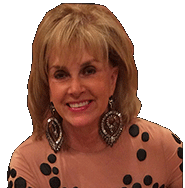School District Workshops & Worksheets
Recently I have been to various schools and while I put together different handbooks designed for each district's needs, the strategies I presented could apply to any curricula.
Hawkins ISD in East Texas deserves praise. Kelly Moore, the new Curriculum Director, had seen me before in another district and invited me to Hawkins. Because Stephanie McConnell, the elementary principal, wisely saw the need for vertical alignment, she asked that all grades be included—at different times—in the workshop. K-2 educators immediately made connections with student-written material I brought from other districts, where students and I composed paragraphs together. Of course, at those levels, teachers encourage students with specifically designed questions that will build more complex sentences step-by-step.
Building On Simple Sentences Worksheet
Grades 3-5 enjoyed the game from my You Say; I Say book as well as the Quick Writes that follow and agreed that when students mark their papers for Topic Sentence, Elaboration, and Voice, they have a clear "picture" of what is missing in their papers.
Secondary teachers, whose principals are Jason Boyd (6-8) & Kelly Moore (9-12), wrote truly publishable paragraphs using three Voice Tricks: Specific Details, Magic 3, and Figurative Language. At times like these, the ideal scenario would be that the whole community could be privy to what teachers produce. In parent letters at the beginning of the school year, teachers could mention that their children would be bringing home their essays as well as their teacher's to be signed. This simple act opens the lines of communication and ensures parents that teachers are writing with their students—that everyone is in this writing workshop together. The results make the extra effort more than worthwhile.
Stephanie Richard, Associate Principal of Curriculum for Kilgore ISD, was the coordinator of the two-day in-service for secondary teachers. Her insight into the format of the workshops allowed me to present to the same group both days. The first session involved the Key Elements of Writing along with the analyses of sample expository and persuasive essays that can serve as student models. The teachers were pros when they participated in collaborative learning strategies, such as the Methods of Elaboration Room Walk and were surprised by how many methods a seventh-grade student had included in his paper. Instantly they made a connection as to how this exercise could add depth and support to their own students' work.
The second day included Engagement Strategies designed to correlate to the topic of the day as well as to motivate all students—especially those hard-to-reach, struggling learners. The main emphasis was on revision, editing, and proofreading—with dozens of exercises to use immediately in classrooms. What a joy to work with eager, knowledgeable teachers! I actually wished for a third day.
Revision:
Revision deals with the papers as a whole—"big strokes of the paper."
This is the time to "pick a fight with your own writing."
Editing:
Editing is what is done after revision and is more concerned with Voice, Sentence Variety, Word Choice, etc.
"The main thing I try to do is write as clearly as I can. I rewrite a good deal to make it clear" (E.B. White).
"You write to communicate to the hearts and minds of others what's burning inside you and we edit to let the fire show through the smoke" (Arthur Plotnik).
Proofreading:
"Over 70% of interviewers discard applicants based on lack of proofreading."
Jeri Look, Secondary Principal of Limestone Community High School District 310 in Illinois, has divided her school's workshops into three sessions. She states that her teachers are thrilled to have Voice Tricks to add interest to papers that had become "do-it-and-get-it-done" works to satisfy state tests. Now that students are armed with specific ways to make their essays more interesting, the writers take more ownership of their works. As one teacher mentioned when he allowed students to write their own prompts in the mode being studied, they "flourished."
"Voice is recognized and scored more consistently in writing than any other trait" (Research on Effective Writing: Northwest Regional Educational Laboratory).
The second session will be conferencing, demonstrating to teachers how not to be burdened by so many papers to grade at home. Teachers aren't the only ones to benefit since one-on-one conversations enable students to understand what problems are recurring in their works and how to correct them.



